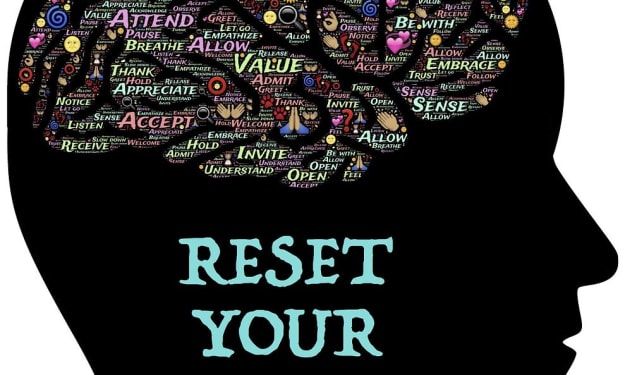What It’s Like to Experience Discrimination as a Freelance Writer with Mental Health Challenges
It is not just your name, race, rates, or gender that can take you out of the running for gigs.

I am an introvert who suffers from anxiety issues which tend to increase tenfold when I find myself in the midst of strangers. As a content creator who is just starting out, I have faced rejections because potential employers refused to work with someone who is upfront about their mental health challenges.
You ask why I want to be upfront about such things in an era where job coaches and even therapists advise you against doing so?
It is easy to judge and say that I should hide these things just to fit in and land the job or to suggest I get some help. Don’t you see that it just contributes to the stigma attached to mental health?
And what if therapy hasn’t helped? You know, therapy and medication are not a one size fits all solution. So does it mean I should quit pursuing my passion and find something else befitting my mental health status?
No. I refuse to accept that.
Challenge #1: Overcoming negative client responses to my mental health challenges:
An article published in Unionlearn describes equality as follows: “Equality is about ensuring everybody has an equal opportunity, and is not treated differently or discriminated against because of their characteristics.”
And yet, it is deeply saddening to me how little prospective clients care about making accommodations for the mental health needs of the people they are looking to hire.
For example, some don’t appreciate it when I say I am open to audio-only Zoom meetings as video calls make me seriously anxious — to the point of stuttering.
It is not surprising therefore that the stigma attached to mental health continues to be rampant despite the drive to raise acceptance and awareness because some employers are simply not willing to make some accommodations. A 2014 study published in the Employee Responsibilities and Rights Journal supports this finding by pointing out that among 600 people, half of them with mental illness, a full quarter of respondents received negative responses after revealing their problems.
In my case, it took a good bit of convincing for the clients I currently work with to allow me to participate in audio-only calls but convince them I did.
How, you wonder?
Because I realized it is ultimately up to me to stand up for myself and negotiate about what I am comfortable with. However, I don’t bring this topic up at the beginning of the discussion but only after I have made my pitch and conveyed what I can bring to the table skill-wise. A valuable strategy that has helped me in such situations is something that I picked up from freelance coach Stefan Palios’ book The 50 Laws of Freelancing in which he says: “My best tip is know what outcomes folks want ahead of time, so when you start any negotiation you can do it from a place of outcomes.”
Going that extra mile in terms of time and research has proved to be worthwhile in negotiations as I have a good idea of how my assignment fits into the client’s broader business goals and am able to tweak my pitch accordingly.
Challenge #2: Overcoming discrimination as a nonnative English speaking freelancer in an industry where there is high demand for native English speakers:
Again, the above is just half of the battle. The other half is my accent. I am a long-time resident of the US who has not adopted the American accent. Oftentimes I have noticed an initial dubiousness from interviewers when they first hear my voice. It is as if they are silently judging me as to whether I can deliver quality content considering the fact that I am a non-native English speaker.
Unionlearn describes diversity as follows: “Taking account of the differences between people and groups of people, and placing a positive value on those differences.”
It sure looks good on paper but when you are a nonnative speaker looking for opportunities in a field where there is a high demand for native English speakers, you can’t help but notice the glaring gap between theory and actual practice.
Take for example this completely unfair reason this blog uses to encourage employers to hire native speakers: “ After all, you get what you pay for, and sometimes cheaper ends up costing you more than money…..Giving a task to a native English writer ensures that you will receive content that is of the highest standard, with little to no mistakes.”
An eye-roll moment if any.
On the bright side, I have been interviewed by people who took the time to familiarize themselves with my social media content which is what 58% of employers tend to do when looking for information supporting a candidate’s qualifications for the job according to a study conducted by The CareerBuilder. The study also states that 50% want to ensure the candidate has a professional online persona, and 34% want to see what other people are posting about the candidate.
In addition, I may also be asked to submit a writing sample to see if I meet the client’s specific standards like this one which was requested by an EdTech company before the hiring decision was made.
It won’t come as a surprise when I say the four clients for whom I work hired me that way.
Yes, my career as a freelancer may be in its nascent stages, and at this point, I don’t depend on it for my bread and butter but that suits me just fine. I am in control as I get to choose projects that I want to be a part of and be upfront about what I am comfortable with. A surprising discovery I made along the way is that even though there are bound to be rejections due to prejudices based on race, mental health, and sometimes even gender, I have also experienced support from both my employers as well as team members after I stood up for myself and broached the topic of my mental health.
Originally published on Medium
About the Creator
Yana Bostongirl
Top writer in This Happened to Me on Medium and avid follower of Thich Nhat Hanh. Yana loves to write about life, relationships, mental health and all things she has a passion for.






Comments
There are no comments for this story
Be the first to respond and start the conversation.